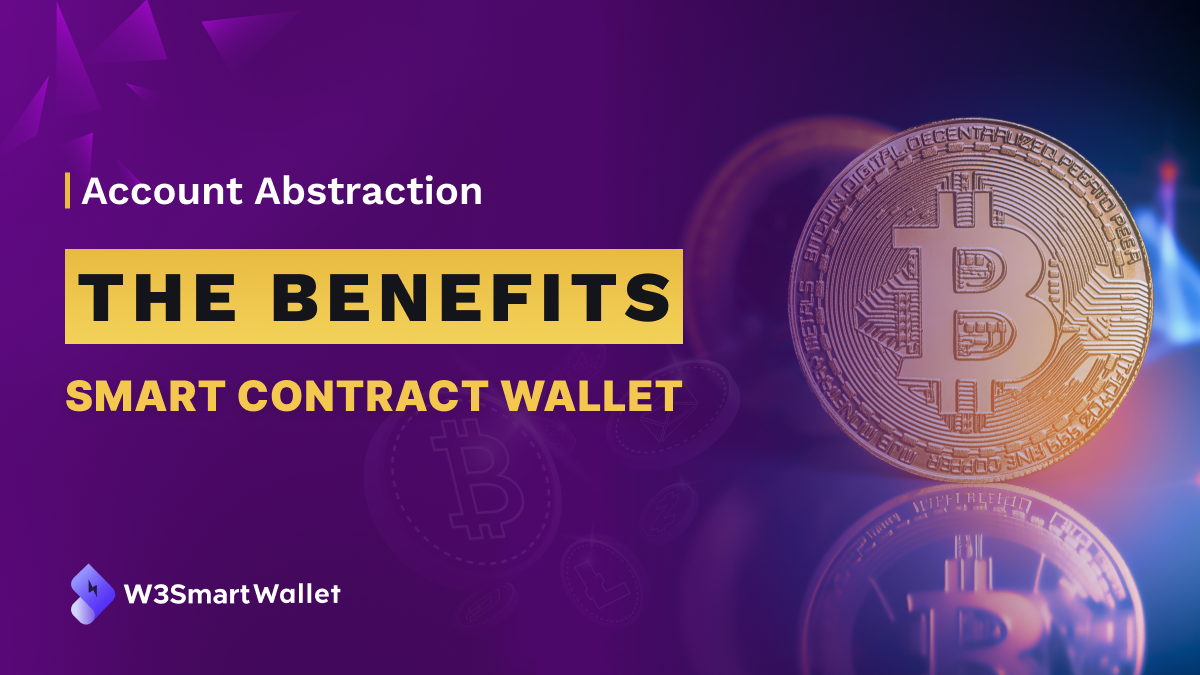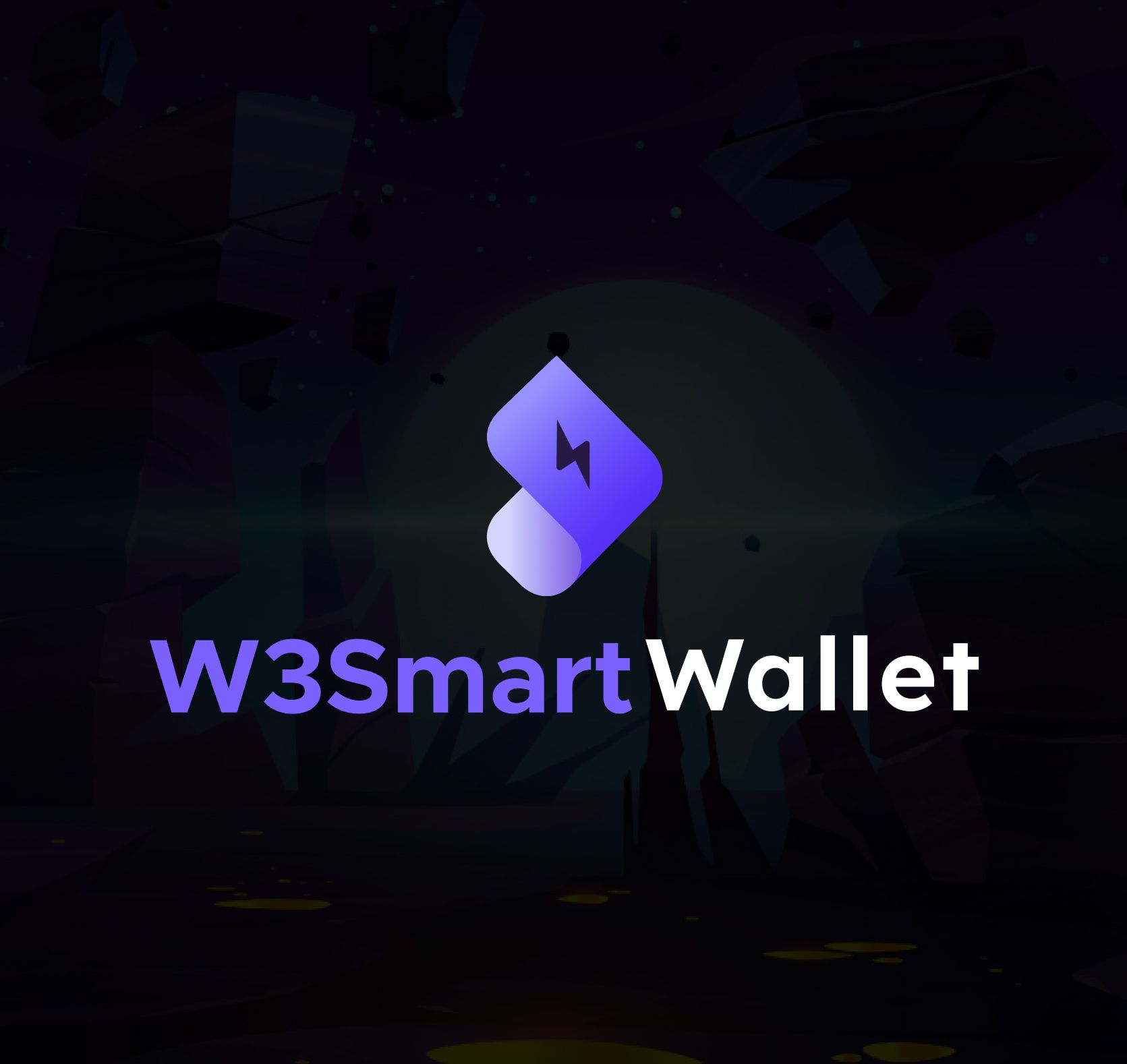
Account Abstraction: The Benefits of smart contract wallet
Ethereum engagement is solely through externally owned accounts (EOAs) for users. This is the only method to initiate a transaction or run a smart contract, which restricts the user's interaction capabilities with Ethereum. For instance, executing batches of transactions becomes challenging and users are obligated to maintain an ETH balance consistently to pay for gas costs.
Account abstraction presents a solution to these issues, enabling users to incorporate enhanced security measures and user experiences into their accounts more flexibly. The term "account abstraction" refers to a proposal aimed at enhancing user engagement with Ethereum, and it's becoming a hot topic within the cryptocurrency community. Nonetheless, you might wonder: "What is account abstraction, and why is it relevant to me?"
This blog is intended to help you understand account abstraction better by introducing you to a specific wallet that has implemented this concept.
Here is a quick summary of key talking points:
- Programmable, self-custodial accounts (also known as "smart accounts") have the potential to make the onboarding process for new users to the web3 ecosystem smoother. However, the design constraints of Ethereum obstruct the widespread acceptance and application of smart accounts.
- Account abstraction proposes considerable alterations that lay the groundwork for the extensive adoption of trustless, censorship-resistant smart accounts. Different strategies for implementing account abstraction are under consideration - each with its unique advantages and disadvantages.
- W3Smart Wallet is one of the first wallets to implement account abstraction. But it doesn't stop there - the wallet also offers a variety of unique customizable features to make your approach to web3 more straightforward.
What is account abstraction?
To gain a comprehensive and detailed understanding of this proposal, please consult ERC-4337: Account Abstraction Using Alt Mempool.
EOAs are controlled by an external private key and are the default account model for most users on blockchain networks that use the Ethereum Virtual Machine (EVM). However, EOAs require a good understanding of how a blockchain works to use safely, which can be a barrier for some users. Not only that, but EOA also has its own limitations:
- The signature scheme is limited to ECDSA and does not support other types of schemes. With the advancement of quantum computers, stronger signature schemes will be needed to prevent signature exploits.
- The current gas fee can only be paid with the native token.
- The nonce scheme currently in use is sequential, which means it does not support submitting multiple transactions at once (in parallel) or other schemes that do not rely on sequential ordering.
Because in account abstraction, an account essentially becomes a smart contract (referred to as a smart contract account), we can indeed implement arbitrary logic for each of the above issues.
Signature abstraction
ERC-1271 proposes a standard way for any contract to verify whether a signature on behalf of a given contract is valid. With account abstraction, we can indeed implement quantum-resistant schemes or other schemes that help optimize the performance of validators and save gas fees, such as BLS (Boneh-Lynn-Shacham) signatures.
Fee abstraction
With the assistance of a paymaster in account abstraction, users can indeed pay gas fees using alternative tokens (such as USDT, USDC, etc.) instead of having to acquire the native token (BNB, ETH), which has been one of the significant pain points preventing users from embracing Web 3.0.
Nonce abstraction
The ability to use nonce schemes flexibly will indeed make it easier for you to design your system. See more: Proposal: semi-abstracted Nonce Support for ERC 4337).
The Benefits of smart contract wallet
By implementing account abstraction, a smart contract wallet can unlock many benefits for the user, including:
- Define your own flexible security rules
- Recover your account if you lose the keys
- Share your account security across trusted devices or individuals
- Pay someone else's gas, or have someone else pay yours
- Batch transactions together (e.g. approve and execute a swap in one go)
- More opportunities for dapps and wallet developers to innovate on user experiences
On the future of account abstraction
We have already brought millions of users to the blockchain through traditional wallets like Metamask. However, how can we attract billions of users to the blockchain? I firmly believe that removing barriers in the current Web 3.0 experience, such as seed phrases, will be a game changer in opening up the entry point to Web 3.0 for users. User-friendly wallets that eliminate such barriers will play a crucial role in achieving this goal.
W3Smart Wallet is one of the pioneers in bringing users to Web 3.0, offering not only security features like:
but also providing user-friendly features such as:
- Whitelists
- Batches transaction
- Gas Sponsorship with Paymaster
- 2FA
- Multichain support It also supports integration with various dApps, particularly in the GameFi sector, through the W3Smart Wallet SDK. This support aims to facilitate accessibility and enhance the user experience for the next billion users when using these dApps through W3Smart Wallet.






